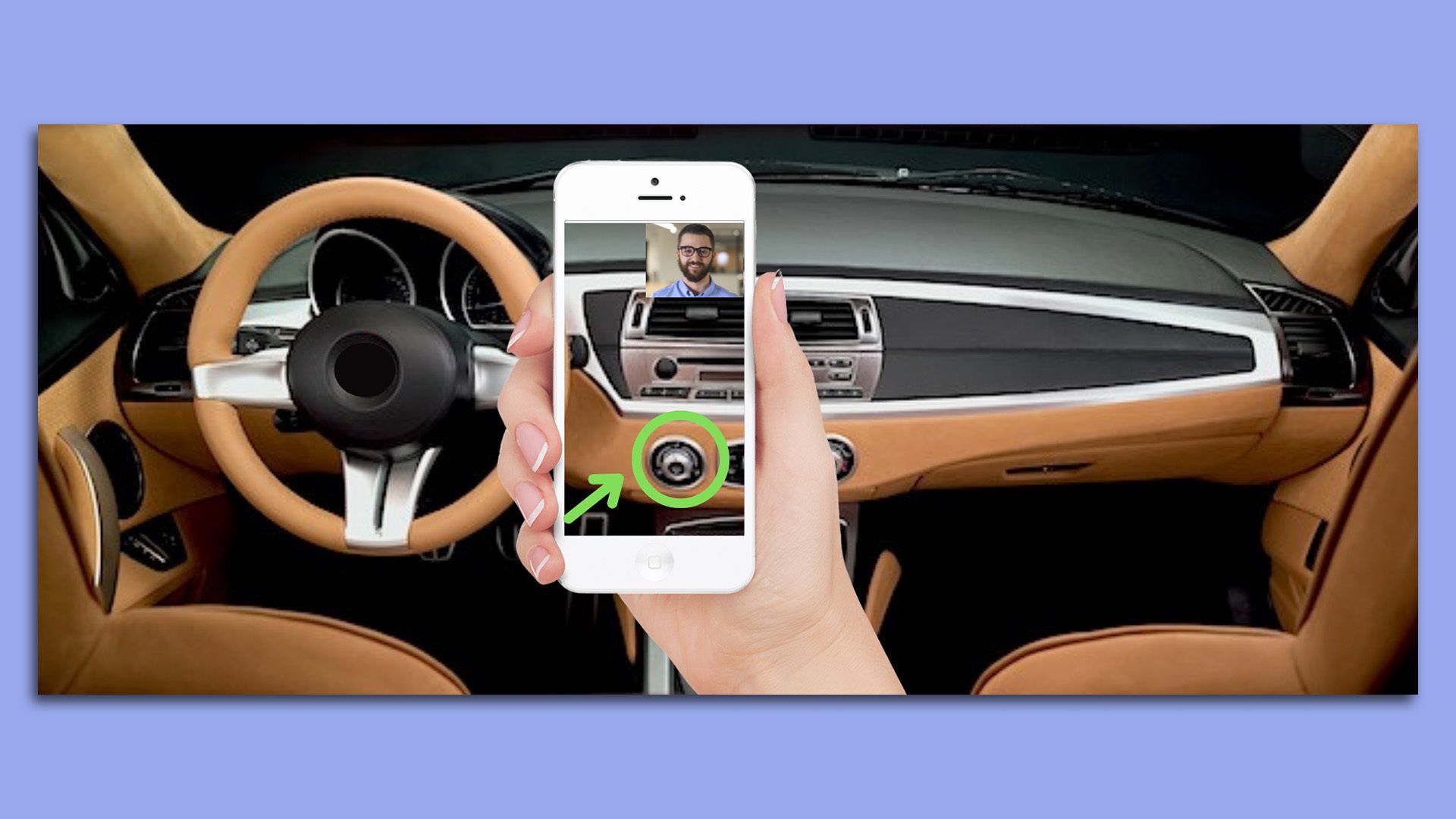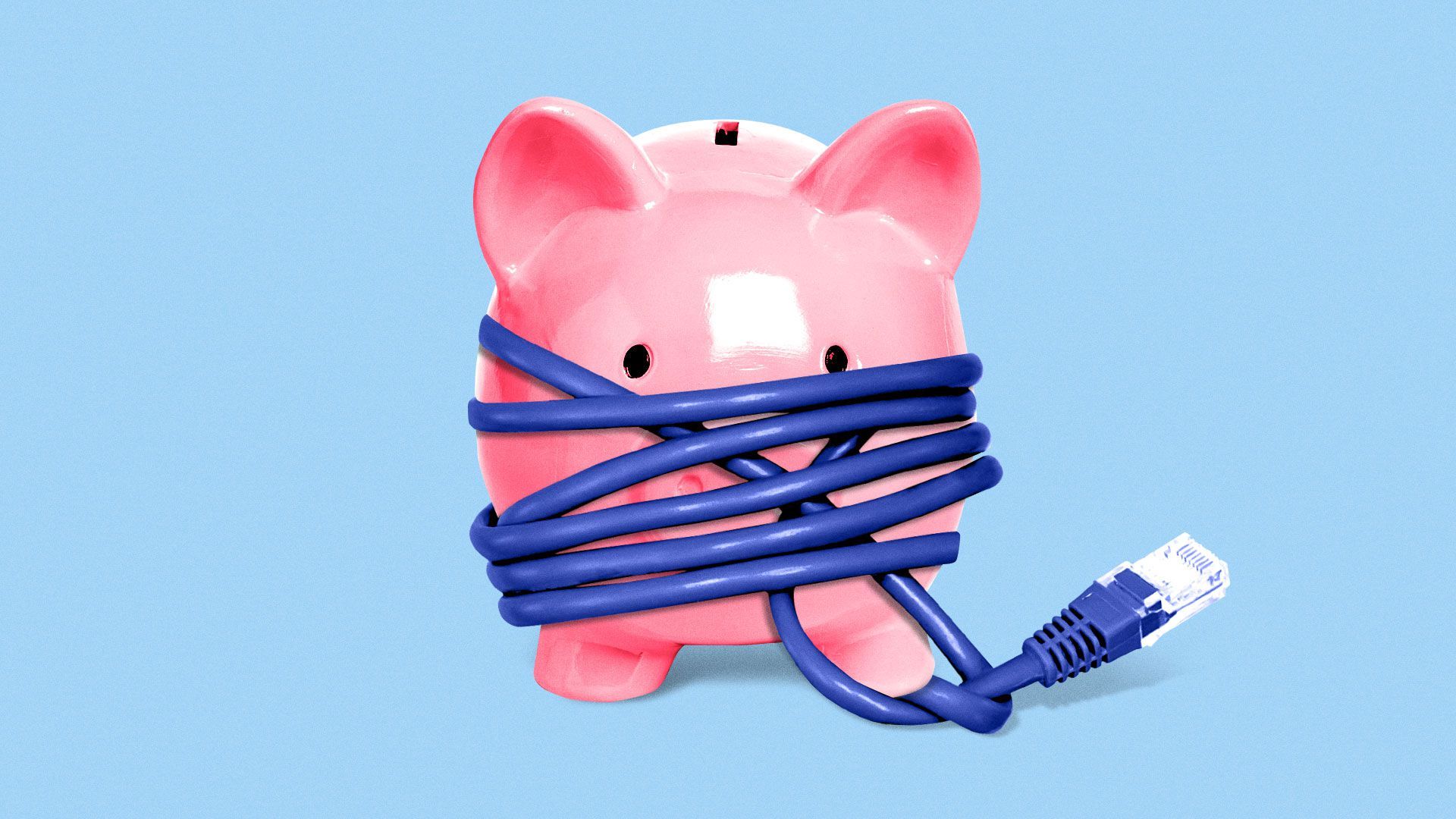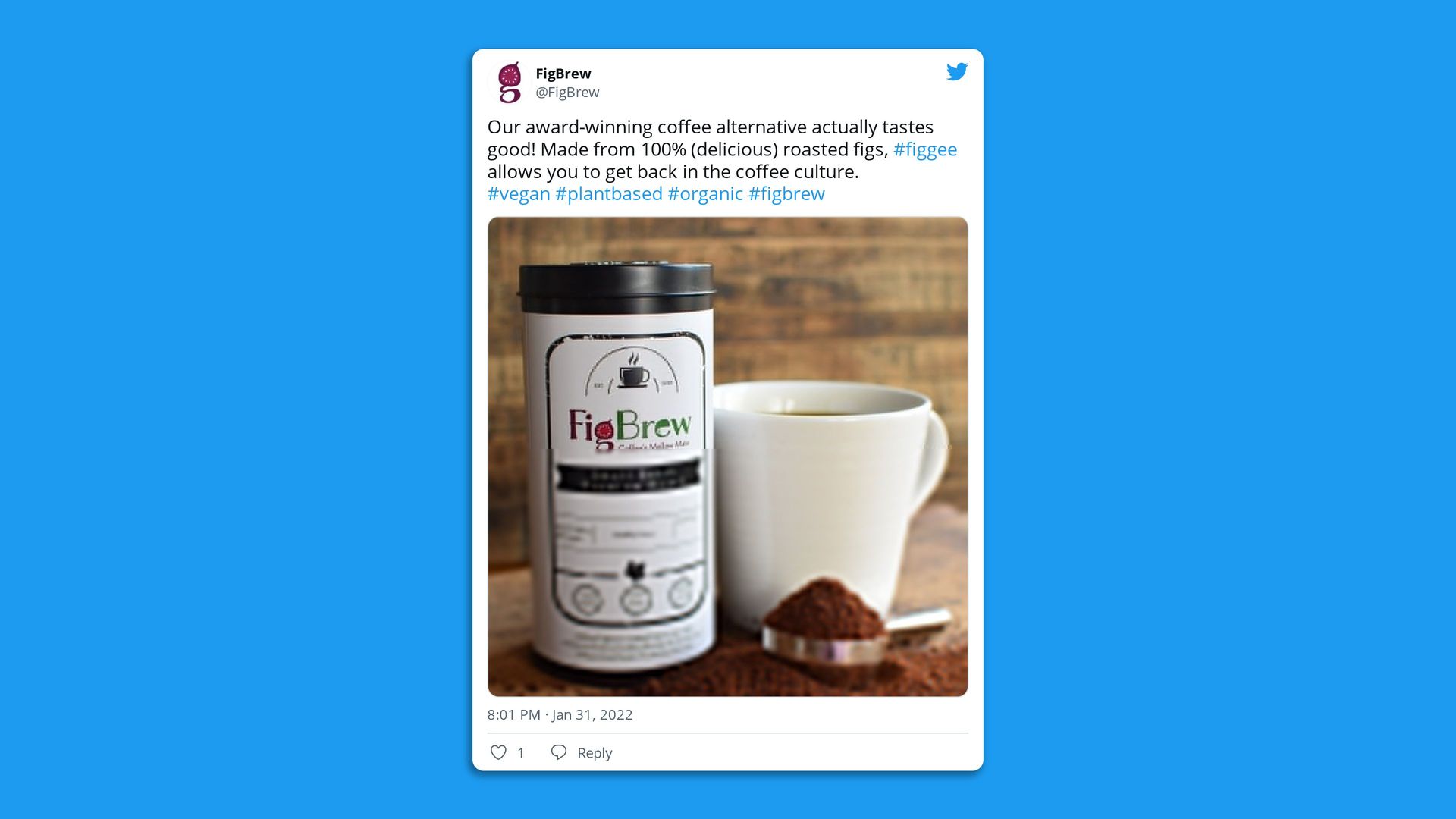| |
| |
| |
| |
| |
| Axios What's Next |
| By Jennifer A. Kingson, Joann Muller and Erica Pandey ·Feb 15, 2022 |
| Our humbug words about Valentine's Day drew mixed reactions from you yesterday. - Margaret Richardson loves the holiday: "I personally believe we don't say 'I love you' enough and we should say it all the time." (Other readers demurred.)
- And we got lots of reactions on other fronts, a few of which are excerpted in item #4 today.
- Please keep writing! Whatsnext@axios.com
🥚 🥚🥚 Situational awareness: Thousands Pledge To Egg Jeff Bezos's Mega-Yacht As It Passes Through Rotterdam Bridge Today's Smart Brevity count: 1,189 words ... 4.5 minutes. |
| |
| |
| 1 big thing: The pandemic-era small business boom |
 |
|
| Illustration: Annelise Capossela/Axios |
| |
| Americans are starting new businesses at a rapid clip — and that's a great sign for the economy, Erica Pandey writes. By the numbers: There were 5.4 million applications to start companies in 2021, a 53% jump from pre-pandemic levels in 2019, according to census data. - A third of those were classified as "high-propensity applications," meaning they're new businesses that are likely to create jobs.
- And entrepreneurs aren't slowing down: There were 430,000 applications in January, per data released this week.
What's happening: A slew of factors are coming together to create an environment ripe for entrepreneurship: - The pandemic gave people time and resources — in the form of stimulus checks and money saved by staying home, among other things — to start new businesses, Julia Pollak, a labor economist at ZipRecruiter, tells NPR.
- The rise of the stay-at-home economy created new business opportunities in areas like food delivery, human resources consulting and e-commerce.
Worth noting: This small business boom comes after one of the least entrepreneurial decades in U.S. history, the 2010s. Between the lines: Many of the people quitting their jobs as part of "the Great Resignation" are doing so to start their own companies. - "It's a related phenomenon," Steven Davis, an economist at the University of Chicago Booth School of Business, said during a roundtable hosted by the Economic Innovation Group on Monday. "People are looking for working arrangements that are more suitable to how they want to live their lives."
- And for many, that means working for themselves.
Read the full story |
    |
| |
| |
| 2. Video tech support — from your car |
 |
|
| Blitzz's video support software helps consumers troubleshoot problems with their car. Image: Blitzz |
| |
| BMW owners who are stumped by their car's goofy gesture controls to change the radio station or turn up the volume can get real-time video instructions from a live human, who will guide them through what to do, Joann Muller writes. Why it matters: Consumers are increasingly overwhelmed and frustrated by the complicated technology bombarding their daily lives, and having an on-demand expert to hold their hand — even virtually — can make a huge difference. - "The customer is not expected to know software," says Rama Sreenivasan, the CEO and co-founder of Blitzz, a startup that's powering BMW's virtual roadside assistance feature.
- "They just want visual empathy," Sreenivasan tells Axios. "All they have to do is hold the phone and show things to the technician. We provide that visual link — then the rest is handled remotely."
How it works: Using video support software from Blitzz, certified BMW technicians can remotely help customers with everything from roadside assistance to troubleshooting their phone's Bluetooth connection. - Drivers contact the carmaker's customer support line on their phone or by pushing the in-car call button.
- An operator determines if the issue is something the customer can probably resolve themselves, and — if it is — they transfer the call to a certified BMW technician or BMW Genius for support.
- The BMW rep asks permission to text a Blitzz video link directly to the customer's phone. Once the customer clicks the link, the two can communicate face-to-face.
- Instead of relying on verbal cues and descriptions, BMW technicians can see firsthand what customers are describing.
Read the rest |
    |
| |
| |
| 3. Federal internet program reaches 10 million households |
 |
|
| Illustration: Eniola Odetunde/Axios |
| |
| A program meant to lower the cost of internet service for Americans has connected more than 10 million households, the White House announced Monday, writes Axios' Margaret Harding McGill. Why it matters: The Affordable Connectivity Program is the largest federal program aimed at helping low-income Americans afford service by offering a $30 monthly discount. What's happening: The ACP is a $14.2 billion program created in the infrastructure law as the successor to a previous broadband benefit that provided $50 a month to help families pay for internet service during the pandemic. - The prior program began in May and had connected more than 9 million households by the end of the year.
- The ACP lowered the monthly benefit to $30 a month, which is available to people who are on some federal assistance programs or receive Pell Grants, among other criteria.
Share this story |
    |
| |
| |
| A message from Axios |
| A better way to communicate with stakeholders |
| |
 |
| |
| Only 5% of stakeholders make it past the first few lines of any internal update. Axios HQ helps you distill essential information, so stakeholders get the news they need to make smarter business decisions faster. See the updates JPMorgan Chase, GLG and more send with the tool. |
| |
| |
| 4. What you're saying: Reader feedback |
 |
|
| Seen in a parking lot in Montauk, N.Y. Photo; Jennifer A. Kingson/Axios |
| |
| Lots of you had thoughts on reader Fredrick Lee's reaction to our piece on President Biden urging states to build electric charging stations. Lee said that states like California "do not need more cars on the streets" but rather need "a bold (and controversial) action to reduce lanes and build autonomous transit systems" for cities. - "I quite agree with the comments that we need to reduce cars on roads," wrote Gary Wynn Kelly. "The current state of the nation's bridges and other transportation infrastructure illustrates how ridiculous it is to continue pursuing short-term solutions.
- "Cars cannot last, as the demands for ever more infrastructure and maintenance of same will be unsupportable and inconsistent with climate crisis mitigation."
- "The build-out of more infrastructure for cars will be interpreted as a promise that cars are always here to provide what people want, and that no, they need not change their habits more than minimally. That is a ridiculous impression to imply. It will be proven wrong in a too near future."
- Robert Askey of Longmont, Colorado, thinks that mindset will be difficult to change: "Americans have a track record of favoring small-car privacy over public buses and trains. Look at most cities' sparsely filled buses for proof."
- "Americans would rather drive their cars now rather than wait for a public bus. To change American transportation, we must first change American commuters' thinking — a process that has been an impossibility for decades."
- Kyle Borland wrote: "Fredrick Lee is spot on! America should be embarrassed we have no high-speed rail in the same time period China built an almost 20,000 km system.
- "Our priorities are wrong and the amount of money spent is nowhere near visionary enough (or global enough in scope) to move the needle the way we need."
....And Cheryl Trivison says: Electric charging stations are transitional. Lee's proposal should be our direction for the future." |
    |
| |
| |
| 5. Brew me up a hot mug of ... fig coffee |
 |
|
| Twitter screenshot: Axios Visuals |
| |
| Coffee made from "100% roasted ground figs" was one of the featured products at the Specialty Food Association's Winter Fancy Food Show in Las Vegas last week, Jennifer A. Kingston writes. - A product called Figgee, which is billed as "a delicious coffee alternative made entirely from figs," won "best in show" at a coffee festival in the Midwest last year, earning plaudits for its maker, a company called FigBrew.
- "I love seeing folks' eyes light up just before they say, 'Oh my, this is so good!' when handing them a sample of Figgee or Mellow Mix," said Marianne Whitehead, co-founder of FigBrew, according to the trade group.
- Figgee is "100 percent caffeine-free and tastes similar to a smooth cup of coffee with a mellow flavor and a mildly sweet after-taste," according to a writeup from the Specialty Food Association.
The intrigue: It turns out that FigBrew isn't the only game in town when it comes to figgy coffee. - Coffig bills its beverage as "a fig-based super drink that helps break the caffeine cycle."
- Some people get creative with it: "I use my French press to make it and then blend it with some cashew butter and a soaked date with a dash of cinnamon," one Amazon reviewer wrote of Coffig. "A morning treat."
|
    |
| |
| |
| A message from Axios |
| A better way to communicate with stakeholders |
| |
 |
| |
| Only 5% of stakeholders make it past the first few lines of any internal update. Axios HQ helps you distill essential information, so stakeholders get the news they need to make smarter business decisions faster. See the updates JPMorgan Chase, GLG and more send with the tool. |
| |
| Was this email forwarded to you? Get your daily dose of What's Next magic by signing up for our free newsletter here. |
 | Bring the strength of Smart Brevity® to your team — more effective communications, powered by Axios HQ. | | |










No comments:
Post a Comment